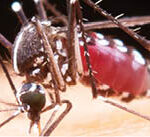The US Foods and Drugs Administration (FDA) approved the first long-acting drug combination for HIV (which would mean monthly injections that can replace daily pills) this year. This breakthrough was hardly noticed or celebrated in the news. This is amidst many proofs that the landscape of discourse about global health has almost entirely revolved around COVID-19 in recent times.
The narrowed conversation driven by the impacts of the current pandemic will neglect already neglected diseases across the world, especially in Africa. While malaria, tuberculosis (TB), and HIV/AIDS are still among the significant causes of death in Africa, the existing refocusing of already limited resources on COVID-19 could lead to millions of excess deaths and disabilities through malaria, HIV/AIDS, tuberculosis and Neglected Tropical Diseases (NTDs) mortality and morbidity. For example, 14 African countries experienced a more than 50 per cent decline in services, ranging from the provision of skilled birth attendants to the treatment of malaria cases in May-July 2020 alone.
The NTDs are infectious diseases such as leprosy, river blindness, trachoma, rabies, etc. They constitute a threat to more than half of the world’s population and affect about a quarter of the world’s population across Latin America, Asia and especially Africa.
The success already achieved in NTDs controls through prevention, control, and elimination currently faces a setback in the light of the current pandemic. The odds of sustaining NTDs prevention, control, and elimination has gradually reduced, with disease rebounds to be expected as a result of the diversion of funds and human resources to address the COVID-19 pandemic.
Unless control programmes are restored quickly, disease transmission and burden will progressively return to the pre-control level during this break-in intervention. Hence, the ongoing COVID-19 pandemic has direct and indirect impacts on NTDs, and these are likely to revert progress made over the past 10 to 15 years.
Sub-Saharan Africa accounts for 94 per cent of global malaria deaths, with Burkina Faso, DR Congo, Mozambique, Niger, Nigeria and Tanzania alone representing up to half of the global deaths in 2019.
COVID-19-induced fear of accessing healthcare centres, lockdown restrictions and disruptions in the supply chain of essential malaria drugs, and reduced number of personnel in rural areas of Africa have delayed malaria prevention campaigns and treatment during the current pandemic. The WHO has warned that these disruptions to current control efforts of malaria, if not addressed, could result in deaths from malaria being more than from COVID-19 in sub-Saharan Africa.
Tuberculosis kills 1.4 million people worldwide, with 25 per cent of the mortality occurring in Sub-Saharan Africa. The pandemic has harmed TB case tracking, as well as supply networks and aids used to fight the disease, resulting in millions of missed diagnoses. According to WHO models, a reduction in global notifications of 25-50 per cent for just three months might result in up to 400,000 more TB fatalities, similar to 2012 mortality.
Africa’s fight against the current pandemic must not be allowed to undermine the progress that has been achieved in control programmes of African endemic diseases.
Nicholas Aderinto is a Writing Fellow at the African Liberty
 Join Daily Trust WhatsApp Community For Quick Access To News and Happenings Around You.
Join Daily Trust WhatsApp Community For Quick Access To News and Happenings Around You.

